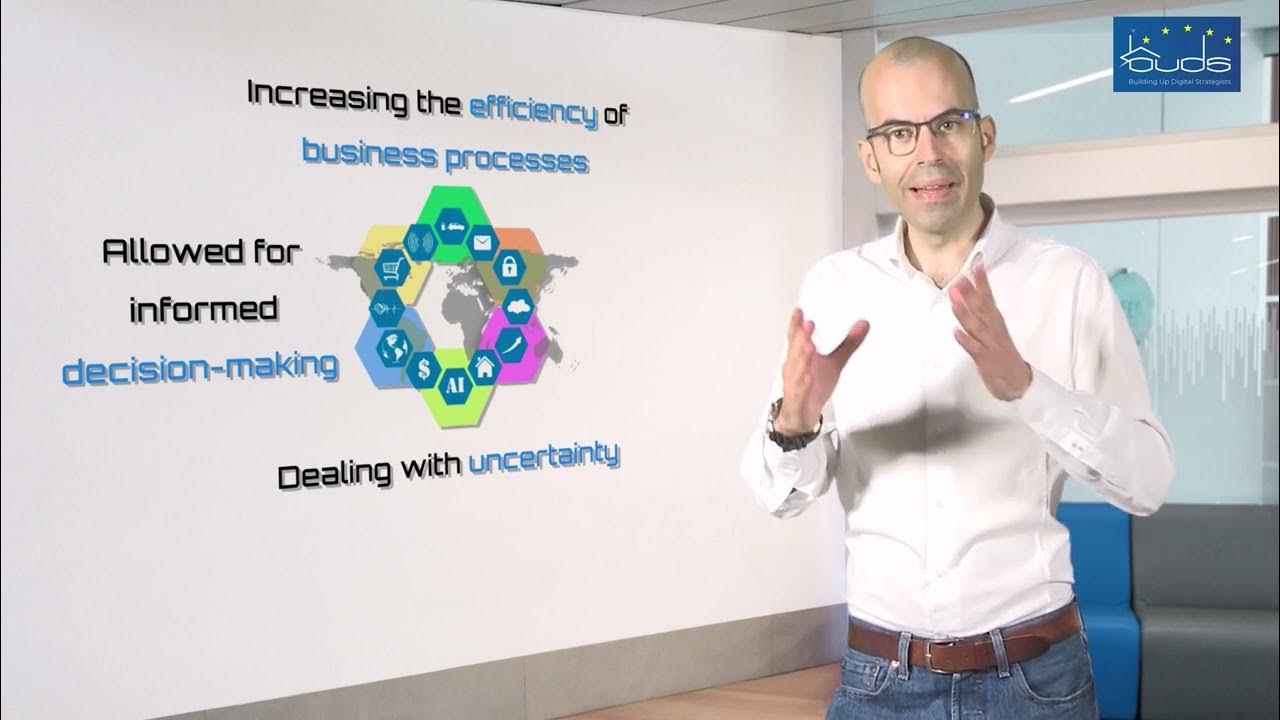The Role of a Change Agent: Characteristics, Definition, Types
Summary
TLDRThis video script explores the pivotal role of change agents in driving organizational transformation. It outlines the necessity of change management strategies amidst evolving business dynamics and identifies internal and external change agents. The script details the key activities of change agents, such as communicating benefits, reducing resistance, and fostering a culture of change. It also categorizes change agents into people-focused, organizational structure, and internal process agents, each with distinct roles like consultants, communicators, trainers, and researchers. The video emphasizes the importance of change agents in preventing costly failures and provides insights into their critical qualities and strategies for success.
Takeaways
- 🚀 Technology advancements, evolving customer needs, and competition are key factors that drive business dynamics.
- 📈 Change management strategies are crucial for organizations to navigate constant changes and challenges.
- 👥 Change agents, both internal and external, play a vital role in leading change initiatives within an organization.
- 💡 A change agent acts as a catalyst, influencing and supporting employees through change processes.
- 🗣️ Effective communication and feedback collection are essential duties of change agents to reduce resistance to change.
- 🎯 There are different types of change agents: people-focused, organizational structure-focused, and internal process-focused agents.
- 📊 External change agents bring an unbiased perspective but may raise concerns among employees and add costs.
- 🏆 Change agents may take on multiple roles, including consultant, communicator, trainer, and researcher, depending on the needs of the organization.
- 💬 Techniques like stakeholder analysis, WIIFM (What's In It For Me), and the MoSCoW method are employed to influence and convince employees to embrace change.
- 🛠️ A good change leader possesses qualities such as clear vision, strong interpersonal skills, patience, and the ability to build relationships.
Q & A
Why is having a change management strategy important for businesses?
-Having a change management strategy is important because it helps businesses navigate through constant changes, evolving customer needs, and new competition, ensuring successful transformation and adaptation to new business dynamics.
What role does a change agent play in an organization's change process?
-A change agent acts as a catalyst for change management, promoting, championing, enabling, and supporting an organization's change implementation, and helping employees adjust to new ways of operating.
What are the key activities performed by a change agent?
-Key activities performed by a change agent include communicating benefits of change, listening to feedback, understanding employee reactions, reducing resistance, engaging with employees, encouraging change champions, and providing feedback on challenges.
Can organizations appoint change agents from within or outside the organization?
-Yes, organizations can appoint change agents both from within, such as managers or HR professionals, or from outside, like external consultants or third-party practitioners.
What are the advantages of having an internal change agent?
-Internal change agents have a deep understanding of the organization's history, culture, and politics, which allows them to establish strong relationships and promote positive attitudes towards change.
What are the potential challenges of using external change agents?
-External change agents can provide a fresh perspective, but their presence might threaten existing employees, and their services can be costly, especially for lengthy change implementations.
What are the different types of change agents that can support organizational change?
-Types of change agents include people focus change agents, organizational and operational structure change agents, and internal process change agents, each focusing on different aspects of change within an organization.
What are the four distinct roles that a change agent can assume?
-A change agent can assume roles such as a consultant, communicator and advocator, trainer, and researcher, depending on the needs and requirements of the change project.
Why is effective communication crucial during a change initiative?
-Effective communication is crucial because it helps employees understand and support the change, reducing stress and ensuring that the change is well-received and implemented successfully.
What is the Moscow method and how is it used by change agents?
-The Moscow method is a prioritization technique used by change agents to gain a shared understanding of the importance of different deliverables, categorized as must-have, should-have, could-have, and won't-have.
What are some key qualities that an effective change agent should develop?
-Effective change agents should develop qualities such as understanding the vision, being patient yet persistent, building strong interpersonal relationships, leading by example, being pragmatic, enthusiastic, well-respected, a strong communicator, a good negotiator, empathetic, and organized.
Outlines

This section is available to paid users only. Please upgrade to access this part.
Upgrade NowMindmap

This section is available to paid users only. Please upgrade to access this part.
Upgrade NowKeywords

This section is available to paid users only. Please upgrade to access this part.
Upgrade NowHighlights

This section is available to paid users only. Please upgrade to access this part.
Upgrade NowTranscripts

This section is available to paid users only. Please upgrade to access this part.
Upgrade NowBrowse More Related Video

Kiat Membangun Integritas di Kalangan Mahasiswa

Cara mengsukseskan reformasi birokrasi disetiap level pemerintahan (Pemerintah Daerah)

KEY CONCEPTS AND THEORIES IN ORGANIZATIONAL DEVELOPMENT

Peran Manajemen SDM Dalam Mendorong Inovasi dan Pengembangan Organisasi

1.3.4. Artificial Intelligence for Digital Transformation: Advantages and Challenges

Bagaimana Peran Pemimpin Dalam Mengawal Perubahan Budaya Organisasi? | Leadership Vibes
5.0 / 5 (0 votes)